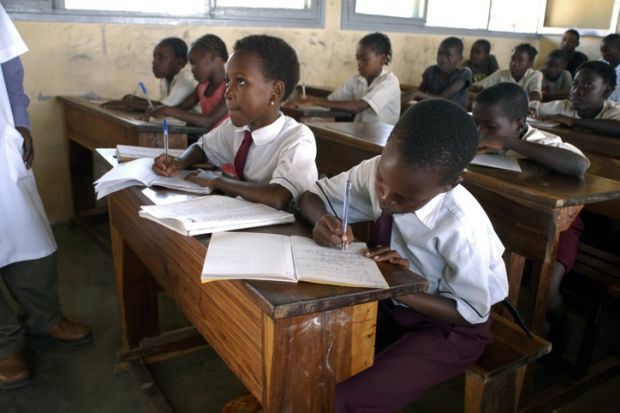Research leaders have urged ministers not to scale back a major UK research fund dedicated to helping poorer countries amid concerns that its funding could be cut as part of reductions to international aid spending.
Established in late 2015, the Global Challenge Research Fund (GCRF) was worth £1.5 billion over its first five years and was expected to be renewed beyond 2021 in the autumn’s Comprehensive Spending Review, possibly even receiving an uplift to its current annual budget, which has now reached £500 million.
Under instruction to be “solutions focused” and “challenge led”, the fund has supported UK researchers from all disciplines to work with those from Africa, Asia, the Middle East and South America on “intractable development issues”, including health, education, air pollution and clean water.
However, last month’s decision to abolish the Department for International Development has raised concerns about the scheme’s future.
Under the department’s merger with the Foreign & Commonwealth Office, overseas aid is likely to be cut by as much as 30 per cent, according to recent reports, after Prime Minister Boris Johnson stated that UK aid was too often viewed as “some giant cashpoint in the sky”.
Mr Johnson’s desire to use the foreign aid budget to “maximise British influence” on the world stage has also raised concerns that any remaining budgets will be less focused on development issues in Africa and South-east Asia, where UK researchers have been active, and will instead be centred on national security issues in Europe.
There are also concerns that the form of “science diplomacy” promoted by the fund in Africa may not find favour in a department more geared towards promoting trade and political relations.
David Price, vice-provost (research) at UCL, said it would be “unfortunate” if the scheme were curtailed, as its funding was “leading, without doubt, to some excellent outcomes”.
Universities were keen for the funding to continue, in part, because “it has taken some time to learn how best to engage with the scheme because it involves developing international relationships”, he added.
Scaling back the fund would also run contrary to the UK’s recently stated ambition to double its research spending to £22 billion a year by 2025, some have noted, while the fund’s champions also argue it can play a role in the UK’s “Global Britain” strategy of broadening international links beyond Europe after Brexit.
Tim Softley, pro vice-chancellor for research and knowledge transfer at the University of Birmingham, said that research projects in Kenya and Uganda on improving air and water quality in cities had helped the UK to “establish relationships with countries that go beyond those created by the traditional diplomatic route”.
“It’s not just relationships with researchers and universities in low-income countries – it is about establishing high-quality links with business and civil society,” said Professor Softley. “As we establish stronger links with these countries, opportunities for UK business to establish themselves in the Global South will emerge.”
More broadly, the fund’s focus on using interdisciplinary research to solve real-world problems had also had a “big impact on how universities have gone about research”, he added.
“When you are working on environmental science issues in major African cities, it is not just about monitoring pollution or identifying its sources,” explained Professor Softley. “It’s about working with local government, business and the World Bank on governance, legal and economic issues, which has required teams from all five of our colleges to get involved.
“It has helped to drive the way we work across the university in a cross-disciplinary way,” concluded Professor Softley.
POSTSCRIPT:
Print headline: Save ‘science diplomacy’: protect overseas development research, urge UK science leaders
Register to continue
Why register?
- Registration is free and only takes a moment
- Once registered, you can read 3 articles a month
- Sign up for our newsletter
Subscribe
Or subscribe for unlimited access to:
- Unlimited access to news, views, insights & reviews
- Digital editions
- Digital access to THE’s university and college rankings analysis
Already registered or a current subscriber? Login








